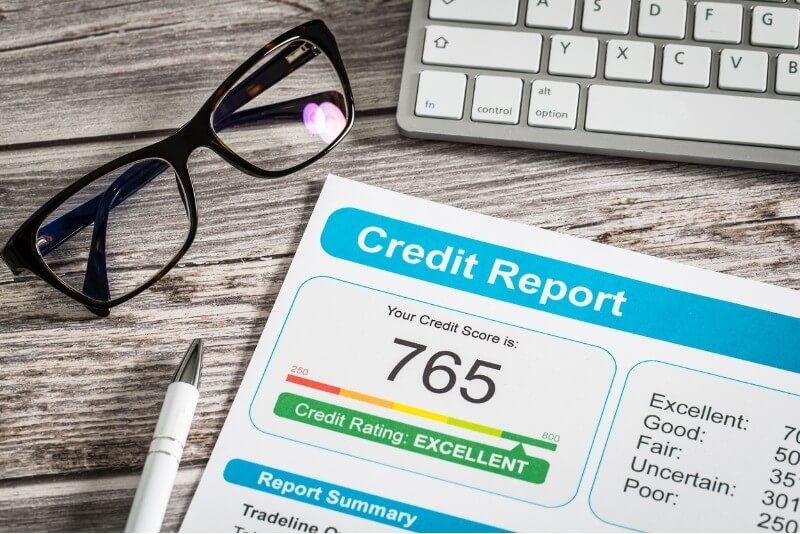

Here’s everything you need to know about the five pieces of the FICO-scoring pie.
This is the single most important part of your credit score. Quite simply, this looks at how many on-time payments you make. You will:
If you don’t pay a medical bill or a cell phone bill, your account may be referred to a collection agency. Once it’s with an agency, they can register that debt with the credit bureaus, which can have a big negative impact on your score. Most negative information will stay on your credit report for seven years. Positive information will stay on your credit bureau forever, so long as you keep the account open. If you close an account with positive information, it will typically stay on your report for about 10 years, until that account completely disappears from your credit report and score. If you don’t use your credit card (and therefore no payment is due), your score will not improve. You have to use credit in order to get a good score.
However, there is a big myth that you have to borrow money and pay interest to get a good score. That is completely false. So long as you use your credit card (it can be a small charge) and then pay that statement balance in full, your score will benefit. You do not need to pay interest on a credit card to improve your score. Remember: Your goal is to have as much positive information as possible, with very little negative information. That means you should be as focused on adding positive information to your credit report as you are at avoiding negative information.
This part of your score will look at a few elements:
To calculate utilization, divide your statement balance (across all of your credit cards) by your available credit. For example, if you have credit limits of $40,000 across four credit cards, and you have a total balance of $20,000 – then you have a utilization of 50%. That is too high, and a high utilization rate is not good.
To have a good utilization score, you will want your total to be below 30%. However, the lower, the better, so aim as low as possible here.
Why is utilization such an important concept? If you use every bit of credit made available to you, then it looks like you are in financial trouble. Maxing out your credit cards is a big warning sign to lenders.
If you have a lot of available credit that you do not use, then you are showing self-discipline.
It may sound strange, but one key to having a good credit score is having a lot of available credit and not using most of it.
This is the easiest part of the credit score to get right. So long as you don’t close accounts, every day this part of your score improves (because all your accounts become one day older).
FICO will look at the age of your oldest account, as well as the average age of all accounts. Closing a long-time account can ding your score as it shortens the length of your credit history.
If you have experience with different types of credit (installment loans, revolving loans, credit cards, etc.), it’s better for your credit score than if you don’t have a variety of experience.
The most important product is a credit card. If you have a credit card and manage it well, you will be rewarded.
Other forms of debt that will affect your credit score include your mortgage payment, auto loan payment, and student loan payments. These fall under the category of installment loans, rather than revolving credit, like a credit card. Varied credit history will include both revolving debt and installment loans.
If you open up a lot of new credit in a short period of time, you will be sending a warning signal to the credit bureau. But this aspect of the credit score has inspired some unwarranted fear in some people. They are afraid to shop for the best deals because they are afraid of what shopping for credit would do to their credit scores.
The FICO score will look at credit inquiries from the past 12 months. Let's break down a few of the myths:
Remember, too, that you can check to see if you have prequalified for any credit cards without triggering a hard pull on your credit (this means it will not appear on your credit report). This is a great way to shop around for cards you are more likely to be accepted for without risking any kind of ding to your credit score. Keep in mind, though, that when you actually apply for the card, there will be a hard pull of your credit history, and your application is not guaranteed to be accepted. But overall, you shouldn’t fear applying for new credit — it’s more likely to help your score over the long run, even if there is a short-term ding.
One exception is when you are aiming to get a mortgage; if this is the case, you should hold off on applying for new credit, because any small change in your credit profile can cause problems with getting a mortgage loan.
There are several ways to get your FICO score for free from the three main credit bureaus. Here are just a few:
There are also several services that offer free regular credit monitoring. MagnifyMoney’s parent company, LendingTree, offers free credit monitoring for anyone who wants to sign up. You’ll have access to your credit score and receive alerts to changes you should be aware of. You should know that LendingTree uses the VantageScore model, which is slightly different from the FICO score, although the score range is the same.
Source: https://www.magnifymoney.com/blog/building-credit/what-factors-affect-credit-scores1450930152/